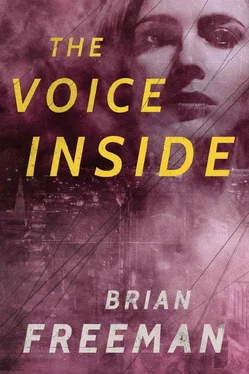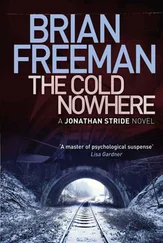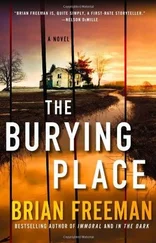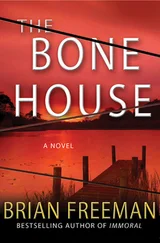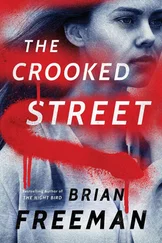“You shouldn’t think like that.”
“Oh, but I do. I do all the time. I feel guilty about it.”
“The only one who should feel guilty is Rudy Cutter,” Frost said. “And maybe me.”
“You? You didn’t do anything wrong. You just did your job.”
“Me doing my job got Jess killed.”
He watched Tabby’s lips part in dismay, as if she wanted to tell him, No, that’s not true. But she couldn’t. Her green eyes reached for him across the short space because she had no comforting words to say. He felt her wanting to get closer to him. Her hand made a gesture in his direction, as if the next motion would be to touch his shoulder or his cheek. He saw her lean in, just a little, just enough to encourage him to lean in to her, too. Her chin tilted in what was unmistakably an invitation to a kiss. At that moment, he knew that she felt the chemistry, too. There was something magnetic and dangerous between them.
Then her whole face changed as she remembered the situation. A tiny flash of horror came and went across her features.
Tabby slid away from him in embarrassment. “Sorry.”
He said nothing.
“You know, about Jess,” she added.
“Right.”
She hugged herself tightly, as if the air had grown cold. She stared out at the water. She bit her lower lip and looked upset with herself. “I still miss Nina.”
“I know. I still miss Katie, too.”
“Sometimes I need a girlfriend to talk to about things.”
“Sure.”
Tabby shivered. “Cutter’s out there looking for someone new, isn’t he?”
“That’s what I’m trying to find out.”
“It’s some girl just like Nina,” she went on. “She has no idea. I hate that.”
“Me, too.”
She shook her head. “I guess you’re right, it’s better not to know the future. Not if you can’t change it. I mean, what if it were me this time instead of some stranger?”
“It’s not,” Frost said.
Tabby stood up again, and he noticed that she wouldn’t look him in the eyes. “Are you sure? If I spun the wheel right now, how many days would I have left?”
Rudy climbed down from the top deck of the tour bus at the vista point on the Sausalito side of the Golden Gate Bridge. His cheeks were windburned from the cold. He had his jacket zipped up. He wore sunglasses and a Chicago Cubs baseball cap that he’d picked up on the Wharf.
Outside the bus, white morning fog poured down from the bridge toward the water like overflowing cotton candy. The city on the other side of the bay looked as if it were floating on top of a cloud. Behind him, the green hills were bathed in sunshine. He was part of a crowd of tourists, all of them with phones and cameras snapping pictures of the view.
Rudy made sure he was out of the camera angles. He didn’t want any record that he’d been here.
The tour guide, who narrated the city’s history as the bus went to each hop-on, hop-off stop, texted on his phone with his thumbs. He was on a break, waiting for the bus to continue its route. The man was in his thirties, with gold studs in both nostrils and a beret over his rainbow-colored hair. He wore a leather jacket decorated with chains.
“What a view,” Rudy said.
“To a kill,” the guide replied without looking up from his phone.
Rudy recoiled. It took him a moment to realize the guide was simply echoing a James Bond movie, and then he laughed. He stayed in profile, so the guide didn’t have a chance to see his face straight on. “I just wanted to tell you that you do a great job with the narration.”
“Thanks.”
“I take these bus tours in all the cities I visit,” Rudy said, “but some of the guides aren’t great at telling stories. It’s more like, here’s this building, here’s that building. Here in Frisco, you guys always make the place come to life.”
He watched the guide wince at the term Frisco , but the man made no effort to correct him. Instead, the man pointed at Rudy’s blue hat. “So you’re from Chicago?”
“Yeah. Out in the suburbs.”
“What do you do?”
Rudy was prepared with a lie. “I sell wholesale furnace replacement parts. Not too exciting.”
The guide shrugged. “Hey, we all have to do something.”
“Yeah. Have you been giving these tours for a while?”
“Three years,” the man said. “It brings in some extra bucks.”
“Well, like I say, you guys are all really good. Last time I was out here, we had an amazing tour guide on the bus. This woman was like an actress, acting out stories at all the stops, singing, telling jokes. She was great. Do you know her?”
“Long dark hair?” the guide asked.
“I think so.”
“That would be Maria. Maria Lopes. You’re right, she really got into it. Got terrific tips. We were all jealous.”
“Is Maria still with the bus company? I’d love to take one of her tours again.”
“No, she left a couple years ago.”
“Oh, too bad,” Rudy said. He waited a beat and made sure his voice was casual. “What’s she doing now?”
The guide shook his head. “I don’t know. Some office job near the Civic Center, I think. I heard she got married, too. Some rich tech guy.”
Rudy hid his disappointment. “Well, good for her.”
“Yeah, no kidding.” The tour guide checked his watch. “I better start herding the cats onto the bus. Time to go.”
Rudy didn’t say anything else. He got back on the bus ahead of the other tourists and made his way to the upper level, where he took a seat in the front row. The East Bay air was cold, but on the other side of the fog, the city would be warm. He turned up the collar of his jacket.
Maria Lopes didn’t work at her old job.
She didn’t live in her old apartment; he’d already checked. It was a setback, but that was to be expected after four years. Maria was still somewhere in the city. She could run, but she couldn’t hide.
He’d find her.
Frost found Phil Cutter’s house on the southern fringe of the city in the Crocker-Amazon area, near the border with Daly City. The two-story house was an eyesore on a street where most of the homes around it were small but well maintained. The yellow siding hadn’t seen paint in years. The windows were shaded by misaligned horizontal miniblinds. A sad little boulevard tree needed water. The only other thing alive on the postage-stamp front yard were tall weeds that had squeezed out the grass.
The house’s garage door was open, and the interior was crowded with so many boxes and so much rusted junk that no one would have been able to fit a car inside. A dirty black Cadillac from the ’90s was parked on the street, blocking the driveway. Frost took a quick look inside the car, which was littered with old newspapers and crumpled fast-food bags. An air freshener in the shape of an evergreen tree hung from the mirror.
He climbed the steps and banged a fist on the house’s front door. Phil Cutter answered with a bottle of brandy in his hand. His clothes drooped on his tall, skeletal frame, and so did his gray skin. He was in his early fifties and looked seventy.
“Easton, right?” the man said with a raspy voice that ended in a cough. He smoothed down his wispy dark hair.
“You know me?”
“Sure, I figured you’d be here sooner or later. A couple other cops already stopped by a few hours ago. Don’t you guys talk to each other?”
“This isn’t an official visit,” Frost said. “I just want to chat.”
“Just a chat, huh? Okay, come on in.”
Frost followed the man into the house. It had the smell of someone who hadn’t showered recently, with a layer of cigarette smoke on top of the body odor. Phil had an impatient, wiry walk, which was more athletic than his appearance suggested. In the living room, which faced the street, the man dropped into an armchair near the windows, and his knee bounced like a tic. Rows of shadows from the blinds fell across his face. Frost didn’t want to sit on any of the musty furniture, so he stood.
Читать дальше
